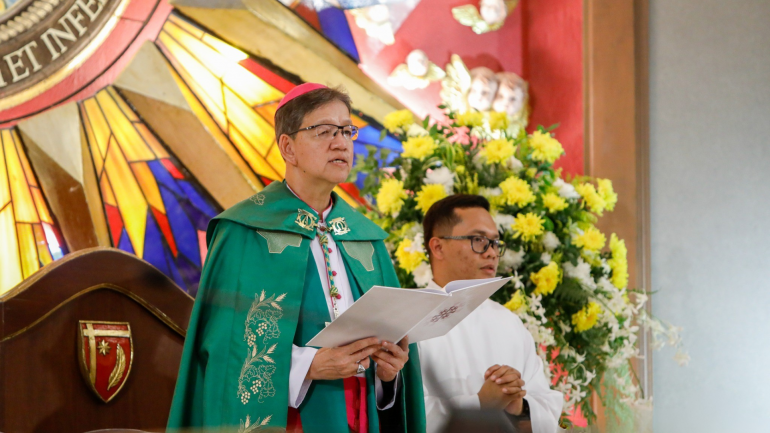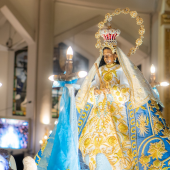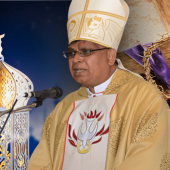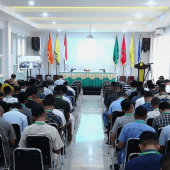Philippines: Cebu Archbishop-Designate Alberto Uy: ‘Not because I am strong, but because of God’s grace

Archbishop-designate Alberto “Abet” S. Uy, in his homily during the Solemn Vespers at the Cebu Archdiocesan Shrine of San Pedro Calungsod on September 28, Sunday, humbly acknowledged his unworthiness by human standards but affirmed his faith that God’s grace, not human strength, is what equips him for his new mission as Cebu’s shepherd.
Uy said God did not choose him for being the strongest or the most capable, but because there is a mission to be fulfilled through his weakness.
“I take this mission as a challenge to live, love, listen with humility, and listen with the heart of a shepherd,” he said.
Uy also reminded the religious and the faithful that when God sends them to a mission, He will provide them with the grace and strength to carry it out.
“If ever you doubt your worth, remember, it is God who chooses,” he said. “And when God chooses, He also equips. God’s strength will always be enough.
On July 16, 2025, Pope Leo XIV appointed him as the Metropolitan Archbishop of Cebu, succeeding Archbishop José S. Palma. His installation is scheduled for September 30 at the Cebu Metropolitan Cathedral.
Before being named to Cebu, Uy had been serving as the bishop of Tagbilaran, a post he had held since 2016. Known for his pastoral simplicity and emphasis on servant-leadership, he worked closely with clergy and laypeople to strengthen parish life and social outreach in Bohol. His years in Tagbilaran, an island diocese in central Philippines, prepared him for larger responsibilities as he now takes on the country’s biggest archdiocese.
Cebu, known as the cradle of Christianity in the Philippines, is the country’s largest archdiocese in terms of Catholic population, with an estimated five million faithful.
In his statement to the newsletter of the Sacred Heart Parish in Cebu, Uy stressed that the Church must continue to use its “prophetic voice” in denouncing “systems of corruption and injustice that keep people in poverty.”
He emphasized that reaching out to the poor and marginalized requires more than charity, insisting that “we must be close to them, listen to their struggles, and make them feel they are part of the Church family.”
Radio Veritas Asia (RVA), a media platform of the Catholic Church, aims to share Christ. RVA started in 1969 as a continental Catholic radio station to serve Asian countries in their respective local language, thus earning the tag “the Voice of Asian Christianity.” Responding to the emerging context, RVA embraced media platforms to connect with the global Asian audience via its 21 language websites and various social media platforms.














